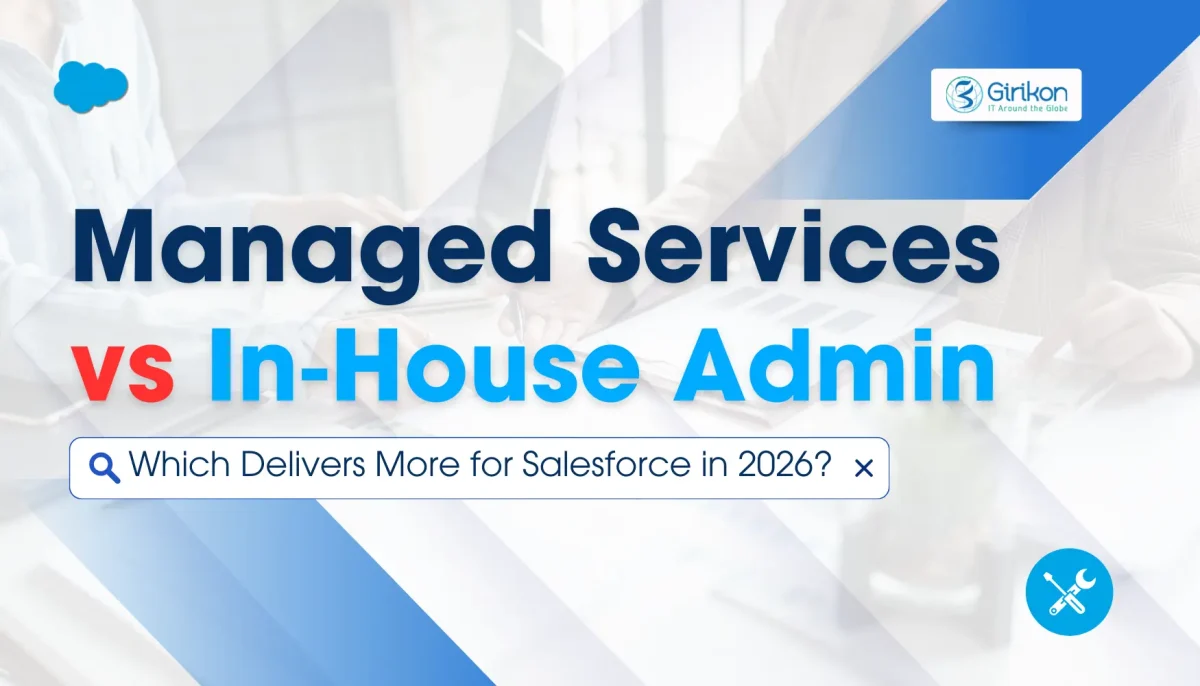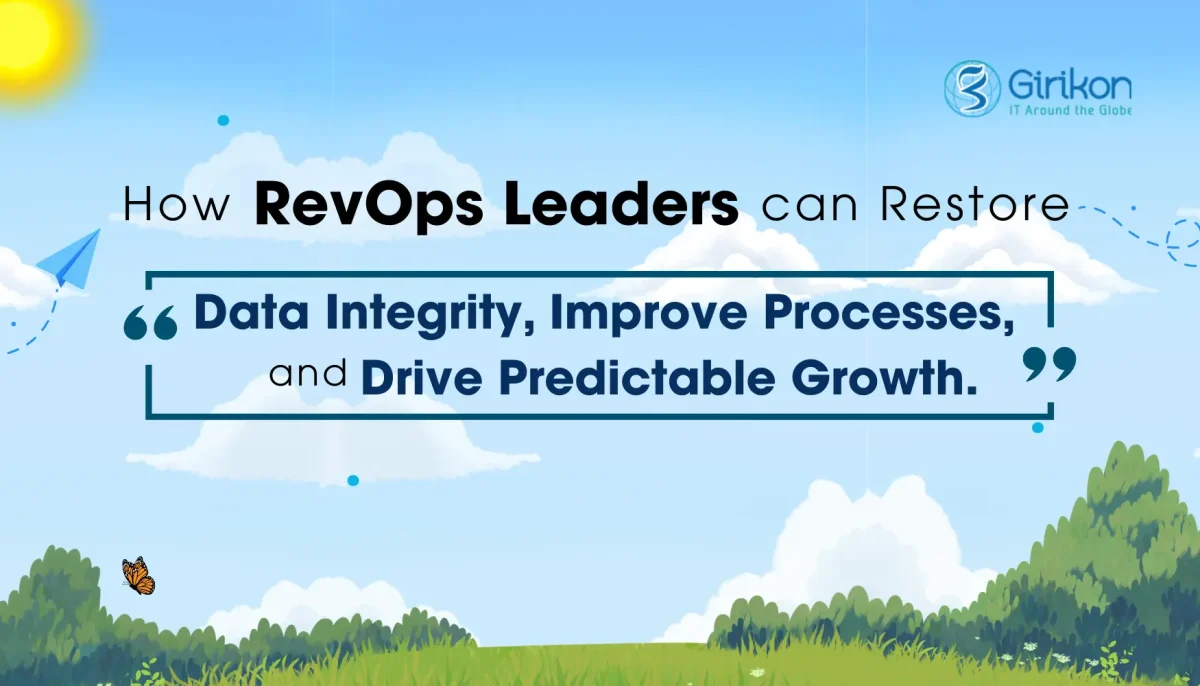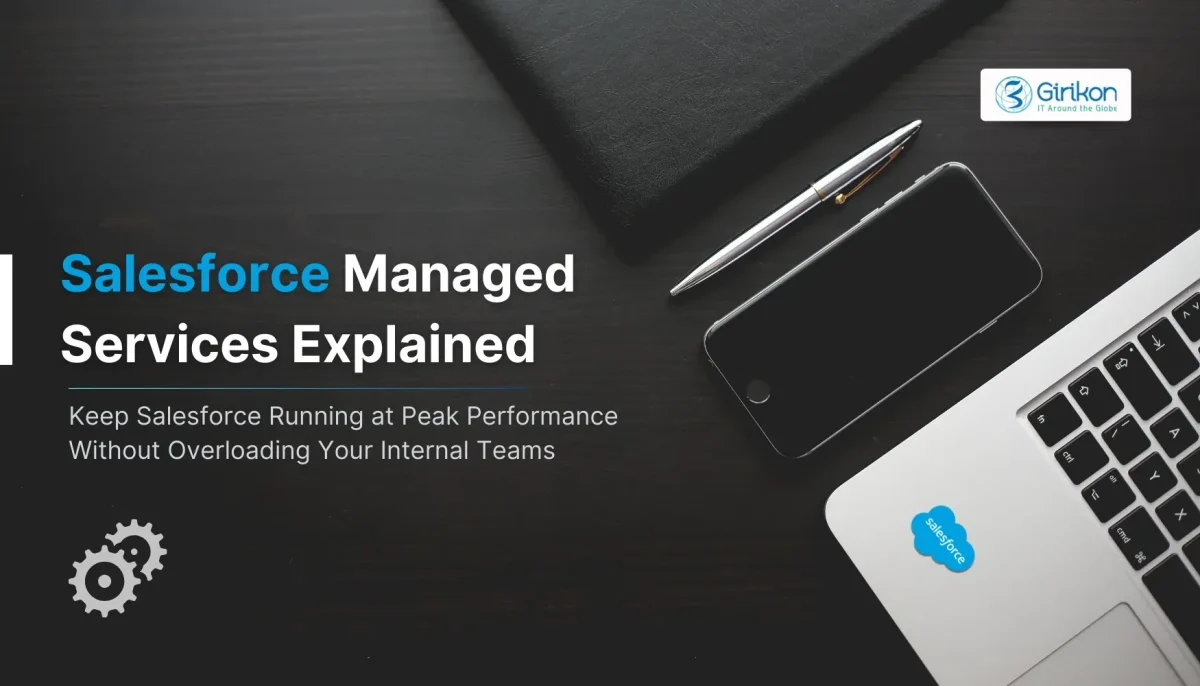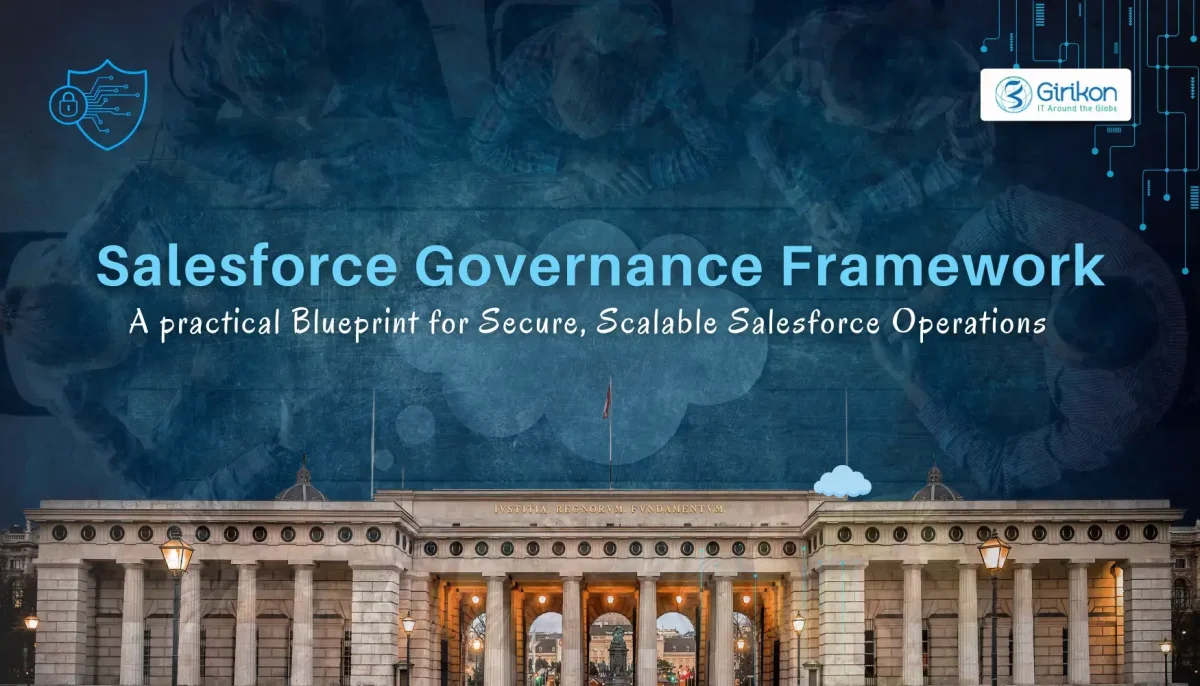Nonprofit organizations require managing multiple tasks on a day-to-day basis. To ensure process efficiency, nonprofits must automate these processes. By leveraging a platform like Salesforce, organizations can effortlessly handle all these tasks without any hassle. However, for nonprofits driven by a certain mission, Salesforce could serve the purpose if it is properly implemented. That’s where the need to hire a Salesforce Implementation Partner arises.
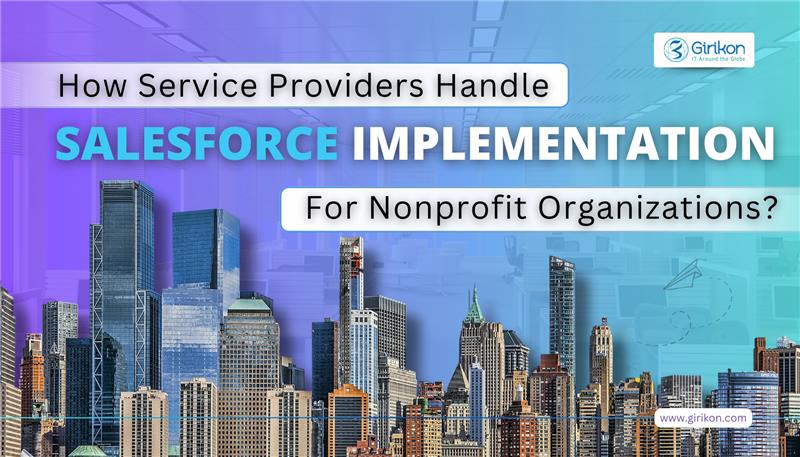
This article delves into the types of providers who deploy Salesforce for nonprofits, the kind of services they deliver, how to opt for the right partner, the kind of budget involved besides practical red flags along with a checklist to use when assessing vendors.
Why Do Nonprofits Bring External Salesforce Help?
The Nonprofit Cloud and Nonprofit success pack offered by Salesforce provides a stable ground for nonprofit organizations. From fundraising tools and data models, these platforms also offer pre-built workflows. However, tailoring and operationalizing the system for specific processes requires expert skills. Salesforce also maintains a partner ecosystem, as well as a Partner Finder where organizations can look for partners by industry, skills, rating and place.
What are the Types of Salesforce Providers for Nonprofits:
Specialist Consultancies: These providers specialize in implementing Salesforce for the non-profit sector. They bring extensive expertise in Nonprofit Cloud and NPSP. Their services typically include the project lifecycle, i.e. from requirements of discovery and system configuration to integrations, user training, and ongoing managed support. Industry reports frequently highlight firms known for their focus on the nonprofit sector.
Enterprise Consultancies: Global consulting firms and large system integrators deliver end-to-end digital transformation projects that integrate Salesforce with their ERP systems, data warehouses, and enterprise-level governance frameworks. These firms are characteristically engaged by large nonprofits and international NGOs operating across multi-system environments. This option can be opted for if your organization requires large-scale integrations, functions across multiple regions, has strict security requirements, or is taking a transformation initiative.
Regional Specialists: Local consultancies offer tailored services with faster turnaround times for small organizations. They often amalgamate technical implementation with change management support and tend to be more adaptable in their cost and engagement models. Regional specialists can be hired if organizations need personalized attention, budget oversight, or prefer working with a team that can provide on-site collaboration.
Managed Service Providers: Many nonprofits require continuous support for post implementation for administrative tasks, management of backlogs, feature augmentations, system health checks, and user training. These service providers offer retainer-based services that ensure your Salesforce instance evolves with organizational needs. They are ideal for organizations that lack in-house Salesforce administrators and require reliable, likely monthly support.
Independent Contractors: Certified Salesforce professionals — including developers and administrators, can be engaged in short-term projects such as data migration, page customization, or minor release of features. This is often the most cost-effective option for work with limited scope yet demands strong internal project management to sustain quality and timelines. These providers are suitable for short-term technical requirements to complement your internal Salesforce team.
What are the Services offered during an Implementation?
Discovery & Strategy: Includes interviews with stakeholders, process mapping, prioritization requirements, and preparing a roadmap for implementation.
Configuration: Preparation of custom objects, page layouts, flows, automation rules, and permission sets without coding.
Custom Development: Use Lightning Web Components, etc., or custom-made integrations when tools fail to meet business needs.
Data Migration: Drawing from antiquated systems, mapping, cleansing, and staged loads.
Integrations: Connecting Salesforce with marketing platforms, payment gateways, finance and learning systems.
Training: Creating adoption strategies, training programs, user actions, and governance frameworks.
Reports & Dashboards: Creating dashboards for fundraising performance, program outcomes, and overall impact measurement.
Ongoing Managed Services: Providing SLA-based support, security oversight, and regular system optimization to ensure continued success.
How to Opt for the Right Service Provider?
Sector Experience: Make sure to associate with partners with proven experience in implementing Salesforce for nonprofits like yours. Previous references provide the strongest sign of appropriate expertise and success.
Product Specialization: Make sure to verify without fail that the partner has practical experience with Experience Cloud and other Salesforce products on your roadmap. Use AppExchange and Salesforce Partner Finder to approve their certifications and credentials.
Delivery Model & Team: Be clear about who will deliver your project. You must also request profiles of key team members. Confirm there’s a devoted project manager and a clearly defined escalation process.
Methodology: An agile approach—with regular demos, a well- prioritized buildup, and clear receipt criteria—drives optimal results, especially for nonprofits whose significances evolve over time.
Security Practices: Since nonprofits deal with confidential donor and beneficiary data, it’s crucial to authenticate the partner’s data security measures, including backups, encryption, access controls, and compliance with regulations.
Cost Transparency: Get a price estimate for core implementation phases. Also ask for hourly rates for change requests. Evaluate the overall cost of ownership, as long-term vendor lock-in can increase expenses.
Change Management Approach: For successful adoption, your partner should provide comprehensive training, detailed documentation, and a proper plan to create internal administrators for long-term sustainability.
Final Words:
There’s no ideal partner offering Salesforce Generative AI services for every nonprofit. The ideal partner should be chosen on the basis of your organization’s size, operational requirements, budget, and willingness for transformation. While small nonprofits generate greater ROI with boutique partners or nonprofit-specialist consultancies that comprehend fundraising, donor management, and volunteer workflows. On the other hand, large foundations often must partner with system integrators capable of managing multi-region deployments and complex integrations. Make sure to authenticate partner details through references, prefer those who blend technical acumen with sector-specific insight, and allocate budget for ongoing managed services to ensure your investment delivers lasting impact.
So, if you are a nonprofit looking for the right partner, make sure to associate with Girikon – a leading provider of Salesforce consulting services. By availing their tailor-made services, nonprofits can ensure operational efficiency.

 +1-480-241-8198
+1-480-241-8198 +44-7428758945
+44-7428758945 +61-1300-332-888
+61-1300-332-888 +91 9811400594
+91 9811400594